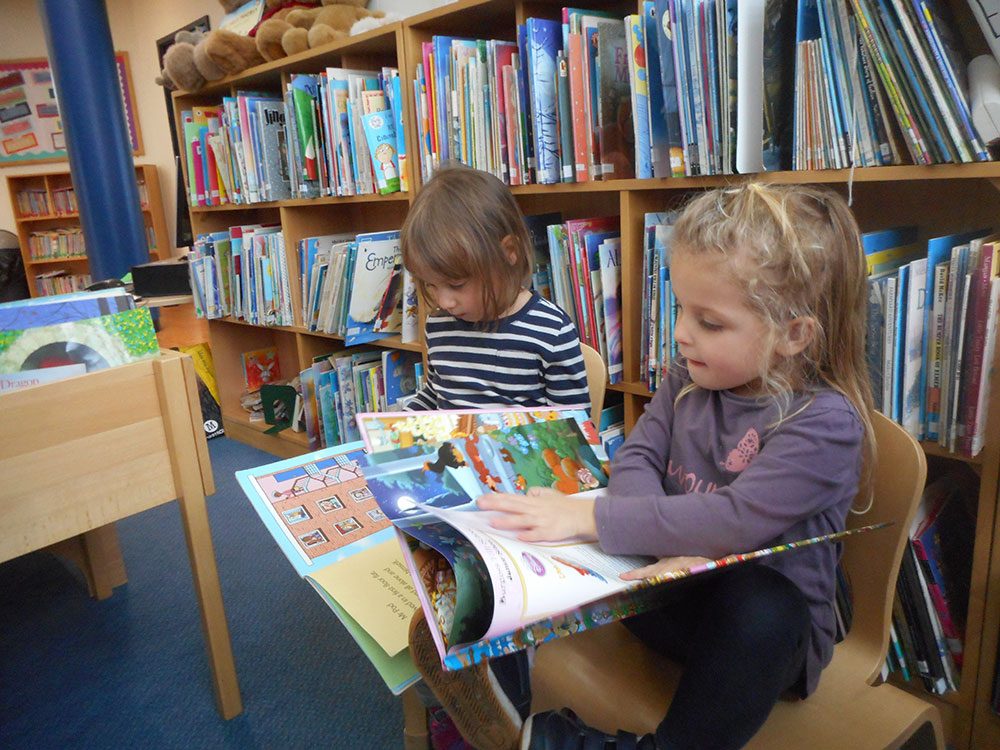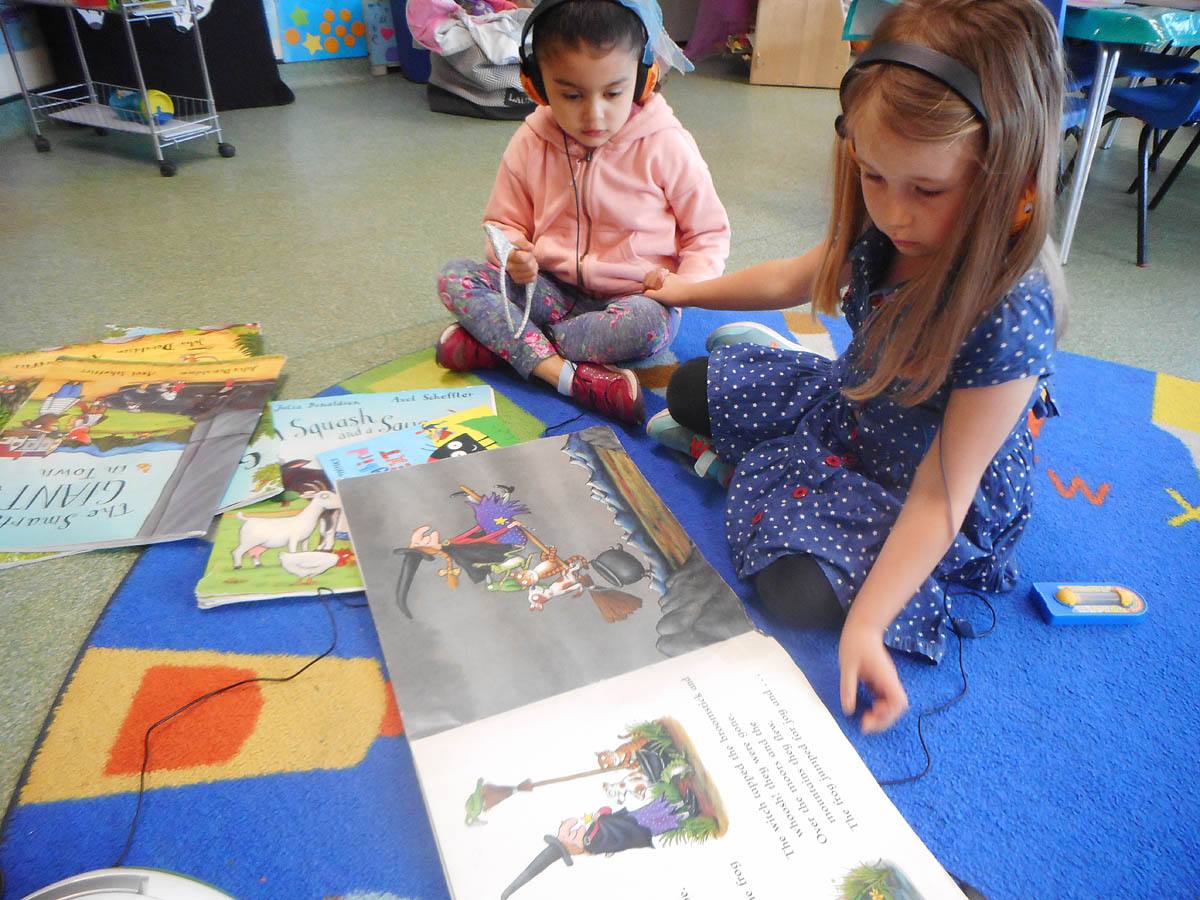Lea
By Mrs Jill Walkinton, Individual Needs Coordinator Junior School
As readers, it is hard to imagine the obstacles life must present for those who struggle to acquire that skill. No one can deny the importance of reading so anything parents can do to support the development of their daughter’s reading skills and enhance their enjoyment must be encouraged. As parents, we are perfectly placed to support our child’s learning in a secure and loving environment but the following tips may be helpful.
Parents can do much to create a positive reading environment and there are many skills that precede learning to read such as developing language, thinking and imagination. It may sound obvious but talk to and with your daughter and listen to her, giving your full attention. Attempt to ask questions that you don’t necessarily know the answers to and find out the answers together. Show your daughter that you too make mistakes and that it’s ok to be wrong; we all learn from them.
Use a rich and varied vocabulary with your daughter. Discussing everyday events is something you will already be doing but you could explore imaginary scenarios together. Often a silly one will appeal such as: ‘What if an elephant were delivered to our home?’ Together you can discuss all the ridiculous implications! Extending vocabulary will, in turn, help her to understand texts more fully once she is reading. After all, there’s no fun decoding words if we don’t understand them, so why not set a rule? Any unknown word meanings should always be asked for.
Allow your daughter to develop her own interests – even if they are different from yours or not what you expected. Support and stimulate a love of learning and allow time to engage in activities and interests.
Reading and spelling rely on automatic recognition of letter shapes, names and sounds and you can help your daughter to learn these. Start with the alphabet sequence, making sure she slows down when saying the central section in order to separate the letter names, otherwise a mysterious elemenopea (l,m,n,o,p) letter might appear! Use letter names to spell words, use letter sounds to sound out unfamiliar words. Pure sounds are important and sound pronunciation websites let you hear how they are pronounced, so that school and home can both use them consistently. A sequence of pure sounds allows the whole word to be heard more easily (and this may differ from how you were taught). Of course, English is full of irregular words that don’t follow rules. These are the tricky words and it is quite okay to read them for your daughter, explaining that they are indeed tricky! Notice signs when you’re out and about, read instructions or recipes, look up something together on the internet or share an interesting picture/article in the newspaper. The subliminal message by doing so is that reading opens doors to knowledge and understanding.
Ideally, reading should feel comfortable and be interesting. Try banishing all electronic devices from the bedroom at bedtime and help your daughters to wind down from the day by reading to and with them. You don’t have to stop this once they have moved off the reading scheme or have become fluent readers. Sometimes, it can be really helpful to read the first few chapters to them in order to ‘get into’ the story. Perhaps you could narrate the story while they read a specific character’s part. They will still have to follow the text but some of the onus is removed while they are still developing reading stamina. Then discuss what has happened, the setting, the characters and what might happen next. Through conversation, you are helping your daughters to become ‘text detectives’, and therefore facilitating the development of higher literacy skills – such as inference and deduction.
Local libraries are a wonderful resource. Visit regularly and let your daughter find books that she finds interesting, rather than books that you think she ought to read. If she selects an old favourite or a very simple book, that’s fine. Don’t insist she takes a more challenging text each time. It can be reassuring to re-read texts or read something quickly and easily. It builds confidence.
Until reading skills are well honed, you are your daughter’s main access to texts that are currently beyond her capabilities. The five finger rule is a rough guide to decide if a book is suitable for independent reading: more than 5 words on the page that she cannot read suggests she will struggle, which detracts from enjoyment and can switch her off. For the more fluent reader, libraries often have lists of fiction about particular topics – so your daughter can find books about specific interests or ones similar to those she has already read.
Of course, the hardest bit for your daughter may be actually learning to read! Some children seem to do this by osmosis but that’s not the usual experience. Of course, this will be taught in school but there’s much you can do too. In the early days, when books are simple and most words are new and challenging, it can be good to look at the pictures first and discuss them with your daughter. You can scan the vocabulary ahead and, in discussion, feed back some of the vocabulary she will meet in the text.
Encouraging consistent left to right tracking of text is important; pointing under words with a finger, having a reading ‘ruler’ with a guideline can help eyes track words more consistently. Is the book on a flat surface or flat against a sloped surface? Is the room’s lighting sufficient for reading and finally have you had your daughter’s eye sight tested?
Audio books are another way to try to engage your daughter in reading – sometimes just through listening but sometimes encouraging her to follow the text in the book while it’s being read aloud. Try listening to audio books together on car journeys – make the reading experience into a serial – hopefully hooking her into the story and giving her the desire to want to know what happens next. For older readers who would rather play computer games etc, the Kindle or similar may appeal and you can help to find a title or series about something that interests them. Otherwise, you could read a book ahead of your daughter in order to tempt them: ‘I think you’d enjoy it. It’s all about a hockey team/pony club/dancers/vets…’ etc.
The last thing is to remember that learning to read is not a race; individuals learn at different rates. So, as long as progress is being made, relax. Some say the greatest gift a parent can give a child is time. With your support, she will get there in the end.





